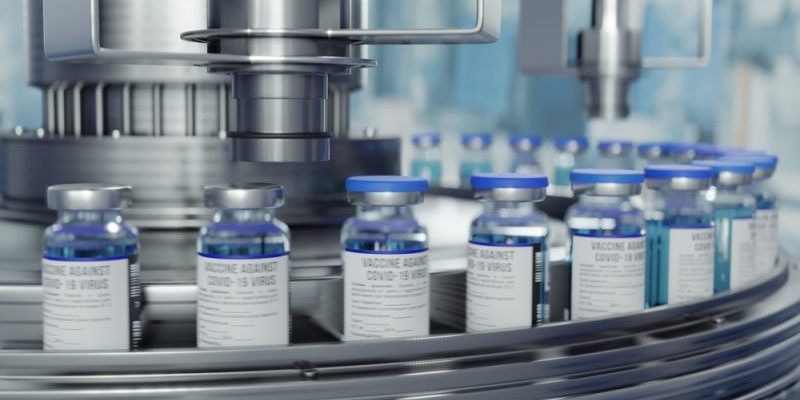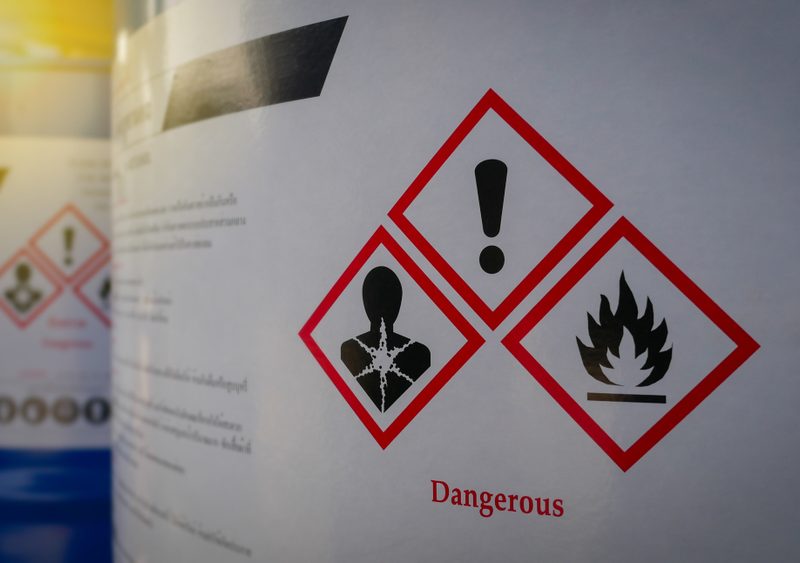A recently proposed universal ban on ‘forever chemicals’ in the EU would have a negative impact on pharmaceutical innovation and access to medicines, the pharmaceutical industry has warned.
Denmark, Germany, the Netherlands, Sweden, and non-EU member Norway on 13 January proposed an EU-wide ban on over 10,000 per- and polyfluoroalkyl substances (PFAS) under Registration, Evaluation, Authorisation and Restriction of Chemicals (REACH).
A restriction proposal, due to its broadness also known as universal PFAS restriction, aims to address the risks to the environment and human health from the manufacture, placing on the market and use of PFAS.
Peter van der Zandt, director of risk management at European Chemicals Agency (ECHA), said this is “one of the broadest restrictions we’ve ever seen in the EU,” during a debate with members of the European Parliament’s health committee (ENVI) on 27 June.
The proposal match with the Commission’s commitment, under the EU’s chemicals strategy, to phase out PFAS in the EU, unless their use is essential for society.
PFAS are a large, complex group of synthetic chemicals that have been used around the world since the 1950s. Carbon-fluorine bonds, one of the strongest chemical bonds in organic chemistry, give PFAS useful properties for making products non-stick, or oil-, stain-, and water-repellent.
On the flip side, PFAS persist in the environment, hence the ‘forever chemicals’ nickname.
These substances pollute water and soil and cause adverse health effects, such as liver damage, immune system disruption, and certain cancers. They can have negative effects on human reproduction and can harm the development of fetuses or interfere with the hormonal system as endocrine disruptors.
Despite the potential harm, PFAS are used across many industries and can be found in textile, food contact materials and packaging, cosmetics, medical devices, transport, electronics and semiconductors and others as well as medicinal products.
The dossier submitters proposed to ban the manufacture, use, and placing on the market of PFAS with a general transition period of 18 months after the entry into force. There are several use-specific and time-limited derogations based on the availability of alternatives, and on socio-economic considerations for those specific sectors.
“Also, there is a general derogation for the use [of PFAS] as an active substance in plant production, biocidal and medicinal products,” van der Zandt said, stressing that this is not a ‘blanket ban’.
Pharmaceutical industry concerned
As the derogation in the proposal is for active pharmaceutical ingredients (APIs) but not for medicinal products overall, this means that manufacturing or using the intermediates, the excipients, the raw materials, as part of the production of the medicine would be covered by the restriction. Packaging would not be excluded either.
“They [the five countries] did not realise the overarching impact it would have on the ability to manufacture medicines in Europe, but also the ability to ensure that we have access to medicines in Europe,” Kirsty Reid, science policy director at European Federation of Pharmaceutical Industries and Associations (EFPIA), told EURACTIV.
She warned that if no derogations are put in place for research and development, manufacturing, excipients, co-formulants, final product and packaging, “that could lead to the immediate withdrawal of some medicines, 18 months after entry into force”.
ECHA stated in its Questions and Answers, the second part, on 28 June that some applications of PFAS in the packaging of pharmaceuticals and medical devices are marked in the proposal as potential derogations for reconsideration.
Additionally, a six-month consultation on the proposal is open until 25 September 2023.
“It’s extremely important that as a sector, we respond to the consultation, we know that that is the only form where it will be taken into account at this point, to ensure that we do have derogations proposed in our sector,” Reid said.
EFPIA is to call for “a tailored PFAS definition that describes the group that is problematic”, such as fluorosurfactants or telomers with short or long fluoroalkyl chains”.
Additionally, there is an aim to push the focus toward emissions rather than the use of substances as well as a call for “a clear regulatory landscape,” with no overlaps between REACH and other regulations targeting pharmaceuticals, packaging or F-Gas, for instance.
“Basically, we support a PFAS restriction that exempts the relevant processes required to manufacture medicines,” Reid said.
Under the current REACH regulation, derogations from restrictions can be granted based on the assessment of risk, including emissions, availability of alternatives and socio-economic impacts.
Therefore, the Commission envisages that derogations will be introduced for critical uses where no alternatives are currently available while taking into account the need to minimise emissions of PFAS for the derogated uses in their entire life cycle, a Commission spokesperson told EURACTIV.
The proposal is currently undergoing an independent scientific assessment in the ECHA Committees, who plan to “address the hazard assessment and start looking at the different sectors where PFAS are used” at the next meeting in September, van der Zandt said.
Once the scientific committees form the opinion, the Commission will prepare an evidence-based restriction proposal, said the Commission’s Kristin Schreiber, director for chemicals and health.
Search for alternatives
The current use of PFAS in the pharmaceutical sector is hard to replace as there are not many available alternatives.
Reid said there are no “drop-in replacement methods” for any uses that would require an alternative, but EFPIA is looking for such alternatives, and added that possibilities of public-private partnerships will be considered.
In the meantime, Erik Ruiz, Safer Pharma project coordinator at Health Care Without Harm Europe, an international non-profit, welcomed the proposal saying that “this ban is not a surprise for the pharmaceutical industry – banning PFAS has been in discussion for a long time”.
He added that the association he represents is working with its members and the Healthcare Market Transformation Network to analyse the different alternatives to PFAS and evaluate how hospitals and healthcare systems should engage with suppliers to boost potential alternatives.
He called this an “excellent opportunity” for the pharmaceutical industry to “green their supply chain and maximise their societal impact by preventing PFAS from entering the environment”.
The Commission’s Schreiber said the Commission is financing research for substitutes. “We do what we can to foster the substitution, but in some cases, we do not have alternatives yet.”
“We will have to accept that in certain areas we will need delegations for PFAS.”
[Edited by Zoran Radosavljevic]



